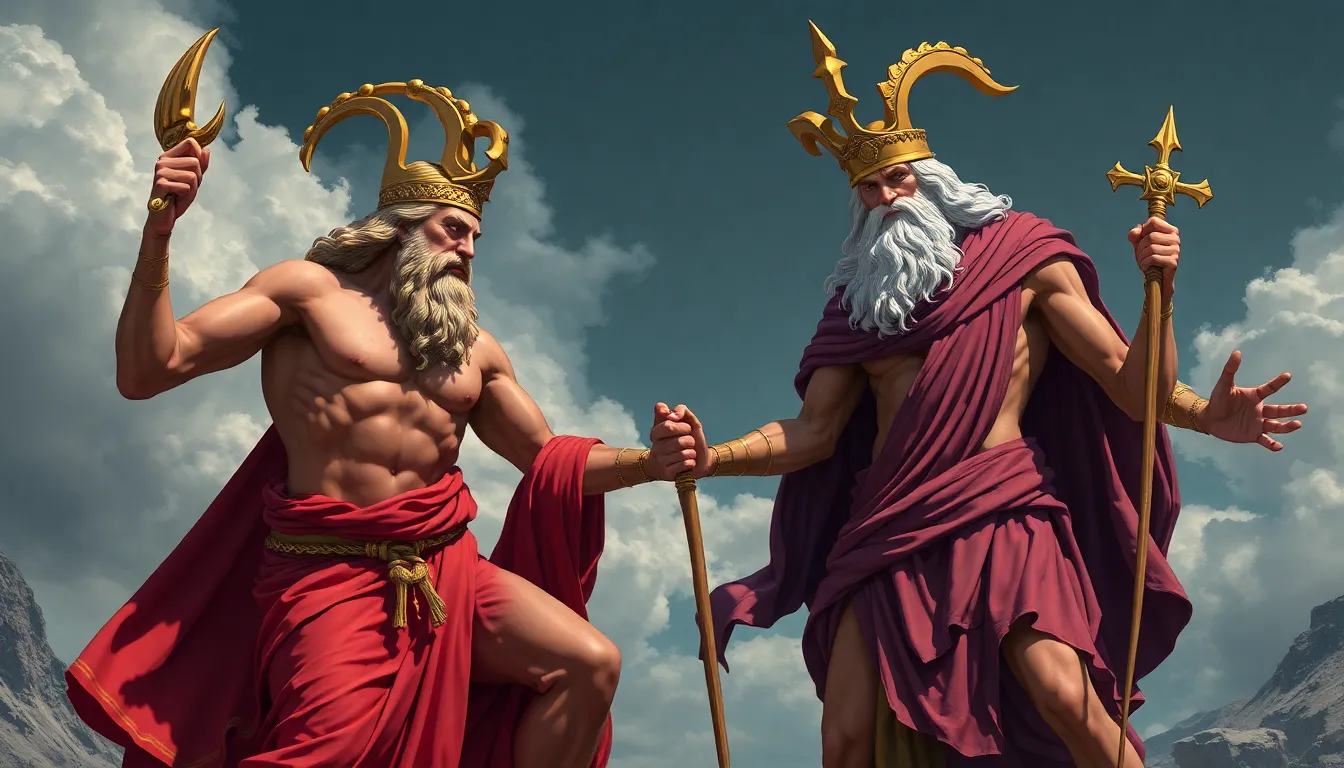The Most Unexpected Mortal Alliances with Greek Gods
I. Introduction
Greek mythology is rich with tales of gods, goddesses, and heroes, each playing a significant role in the tapestry of ancient beliefs. The pantheon of Greek deities, including Zeus, Hera, Athena, and Poseidon, was not only revered but also intertwined with the lives of mortals. Among the most fascinating aspects of these myths are the unexpected alliances formed between mortals and gods, often leading to extraordinary events and lessons.
Mortal alliances with the divine were significant, as they often influenced destinies, shaped narratives, and reflected the values of ancient Greek society. This article aims to explore some of the most surprising partnerships between mortals and gods, revealing the depth and complexity of these relationships.
II. The Origins of Mortal-God Alliances
The historical context of Greek mythology reveals a world where gods were not distant figures but active participants in human affairs. Mortals frequently called upon deities for assistance, guidance, or intervention. These alliances often stemmed from:
- Fate and Prophecy: Many mortal alliances were foretold by oracles and prophecies, suggesting that the gods had a hand in shaping the destinies of mortals.
- Divine Attention: Mortals attracted the attention of gods through acts of bravery, piety, or exceptional deeds, leading to unexpected partnerships.
Such alliances were not only pivotal in myths but also served as moral lessons for the ancient Greeks, highlighting the interplay between divine power and human agency.
III. Hercules and His Companions
One of the most unexpected partnerships in Greek mythology is that of Hercules and the Argonauts. Hercules, a demi-god known for his incredible strength, joined the Argonauts on their quest for the Golden Fleece, a symbol of authority and kingship.
Their journey was fraught with challenges, including encounters with monsters and treacherous waters. The alliance between Hercules and the Argonauts demonstrated:
- Teamwork: Despite their individual strengths, the Argonauts relied on each other’s abilities to overcome obstacles.
- Lessons of Sacrifice: Hercules often put himself in danger to protect his companions, illustrating the theme of selflessness.
This partnership not only solidified Hercules’s reputation as a hero but also showed how mortal alliances could lead to greatness and adventure.
IV. Odysseus and Athena
The bond between Odysseus, the clever and resourceful hero of the “Odyssey,” and Athena, the goddess of wisdom, is another remarkable alliance. Their relationship was characterized by mutual respect and admiration, as Athena guided Odysseus through his trials.
Key moments of Athena’s intervention include:
- Disguising Odysseus upon his return to Ithaca.
- Providing him with strategic advice during battles.
The significance of this divine guidance showcases how Athena’s wisdom complemented Odysseus’s cunning, allowing him to navigate the challenges of his journey. Their alliance emphasizes the importance of intellect and strategy in overcoming adversity.
V. Psyche and Eros
The love story between Psyche and Eros, the god of love, stands out as a tale of unexpected partnership marked by trials and transformation. Initially, Psyche’s beauty incited jealousy in Aphrodite, leading to a series of challenges set before her.
Psyche faced numerous trials, including:
- Collecting golden fleece from fierce rams.
- Fetching water from a treacherous river.
- Descending into the Underworld to retrieve a box of beauty.
Through these trials, themes of trust, loyalty, and transformation emerge, as Psyche’s love for Eros leads her to grow and evolve. Their union ultimately signifies the power of love to transcend obstacles and the importance of faith in relationships.
VI. Persephone and Hades
The relationship between Persephone and Hades is a complex narrative that defies traditional norms of love and power dynamics. When Hades abducted Persephone to be his queen in the Underworld, it set off a chain of events that would affect the very seasons.
The implications of their union are profound:
- Persephone’s dual role as both goddess of spring and queen of the Underworld symbolizes the cycle of life and death.
- Their relationship highlights themes of love entwined with power, as Hades’s initial act of abduction transforms into a partnership that reflects mutual respect.
Understanding their alliance provides insight into the complexities of love and the balance of power within relationships.
VII. Theseus and Ariadne
Ariadne’s role in assisting Theseus in defeating the Minotaur is a poignant example of how mortal alliances can change the course of a hero’s journey. With her thread, Ariadne provided Theseus with the means to navigate the Labyrinth, ensuring his victory.
The consequences of their alliance were significant:
- Theseus’s triumph over the Minotaur solidified his status as a hero.
- Ariadne’s subsequent abandonment by Theseus raises questions of sacrifice and betrayal.
This partnership highlights the themes of loyalty, sacrifice, and the often bittersweet nature of love in mythology.
VIII. Conclusion
This exploration of unexpected mortal alliances with Greek gods reveals the rich tapestry of relationships that characterize Greek mythology. From Hercules and the Argonauts to the complex union of Persephone and Hades, these partnerships have left a lasting impact on the narratives of ancient Greece.
The alliances between mortals and deities reflect not only the values of the time but also resonate with contemporary themes of love, sacrifice, and the quest for identity. As we reflect on these tales, we recognize the enduring nature of such alliances, inviting us to ponder the nature of our own connections in a modern context.




